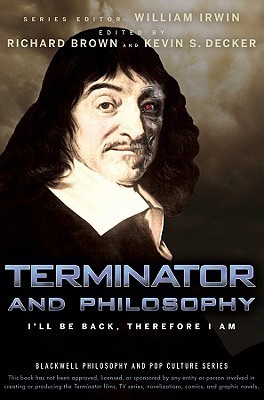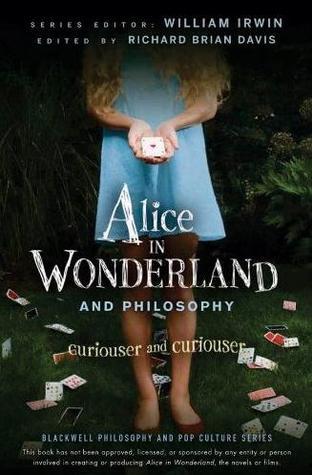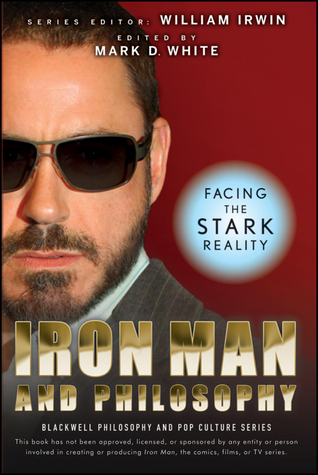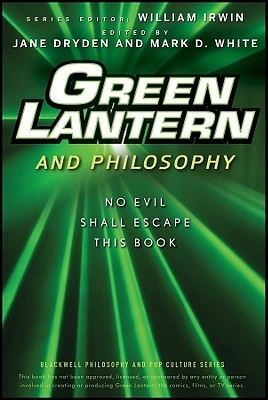


Books in series

South Park and Philosophy
You Know, I Learned Something Today
2006

Metallica and Philosophy
A Crash Course in Brain Surgery
2007

Family Guy and Philosophy
2007

24 and Philosophy
The World According to Jack
2007

Lost and Philosophy
The Island Has Its Reasons
2007

The Daily Show and Philosophy
Moments of Zen in the Art of Fake News
2007

Battlestar Galactica and Philosophy
Knowledge Here Begins Out There
2008

The Office and Philosophy
Scenes from the Unexamined Life
2008

Batman and Philosophy
The Dark Knight of the Soul
2008

House and Philosophy
Everybody Lies
2008

Watchmen and Philosophy
A Rorschach Test
2009

X-Men and Philosophy
Astonishing Insight and Uncanny Argument in the Mutant X-Verse
2009

Terminator and Philosophy
I'll Be Back, Therefore I Am
2009

Heroes and Philosophy
Buy the Book, Save the World
2009

Twilight and Philosophy
Vampires, Vegetarians, and the Pursuit of Immortality
2009

Final Fantasy and Philosophy
The Ultimate Walkthrough
2009

Alice in Wonderland and Philosophy
Curiouser and Curiouser
2009

Iron Man and Philosophy
Facing the Stark Reality
2010

True Blood and Philosophy
We Wanna Think Bad Things with You
2010

Mad Men and Philosophy
Nothing Is as It Seems
2010

30 Rock and Philosophy
We Want to Go to There
2010

The Ultimate Harry Potter and Philosophy
Hogwarts for Muggles
2010

Ultimate Lost and Philosophy
Think Together, Die Alone
2010

Green Lantern and Philosophy
No Evil Shall Escape this Book
2011

The Girl with the Dragon Tattoo and Philosophy
Everything Is Fire
2011

Inception and Philosophy
Because It's Never Just a Dream
2011

Arrested Development and Philosophy
They've Made a Huge Mistake
2011

The Hunger Games and Philosophy
A Critique of Pure Treason
2012

The Walking Dead and Philosophy
Zombie Apocalypse Now
2012

Game of Thrones and Philosophy
Logic Cuts Deeper Than Swords
2012
The Avengers and Philosophy
Earth's Mightiest Thinkers
2012

Downton Abbey and Philosophy
The Truth Is Neither Here Nor There
2012

The Big Bang Theory and Philosophy
Rock, Paper, Scissors, Aristotle, Locke
2012

Spider-Man and Philosophy
The Web of Inquiry
2012

The Big Lebowski and Philosophy
Keeping Your Mind Limber with Abiding Wisdom
2012

The Hobbit and Philosophy
For When You've Lost Your Dwarves, Your Wizard, and Your Way
2012

Black Sabbath and Philosophy
Mastering Reality
2012

Superheroes
The Best of Philosophy and Pop Culture
2011
Authors



Eric Bronson is the author or editor of seven books. He has a Ph.D. in philosophy and currently teaches in the Humanities Department at York University in Toronto. His classes on Modern Life focus on anxiety, creativity, and happiness. His most recent book, Enchanted Wisdom, takes readers through the ancient religious roots of enchanting activities from around the world like cooking Chinese food, climbing Mt. Everest, and dancing to gospel music. His most recent work of historical fiction, King of Rags, explores Scott Joplin's tragic quest to write the music of civil rights fifty years before America was ready to listen. The Chicago Sun Times noted that Bronson's "Baseball and Philosophy makes you realize just how fun thinking about baseball really is."